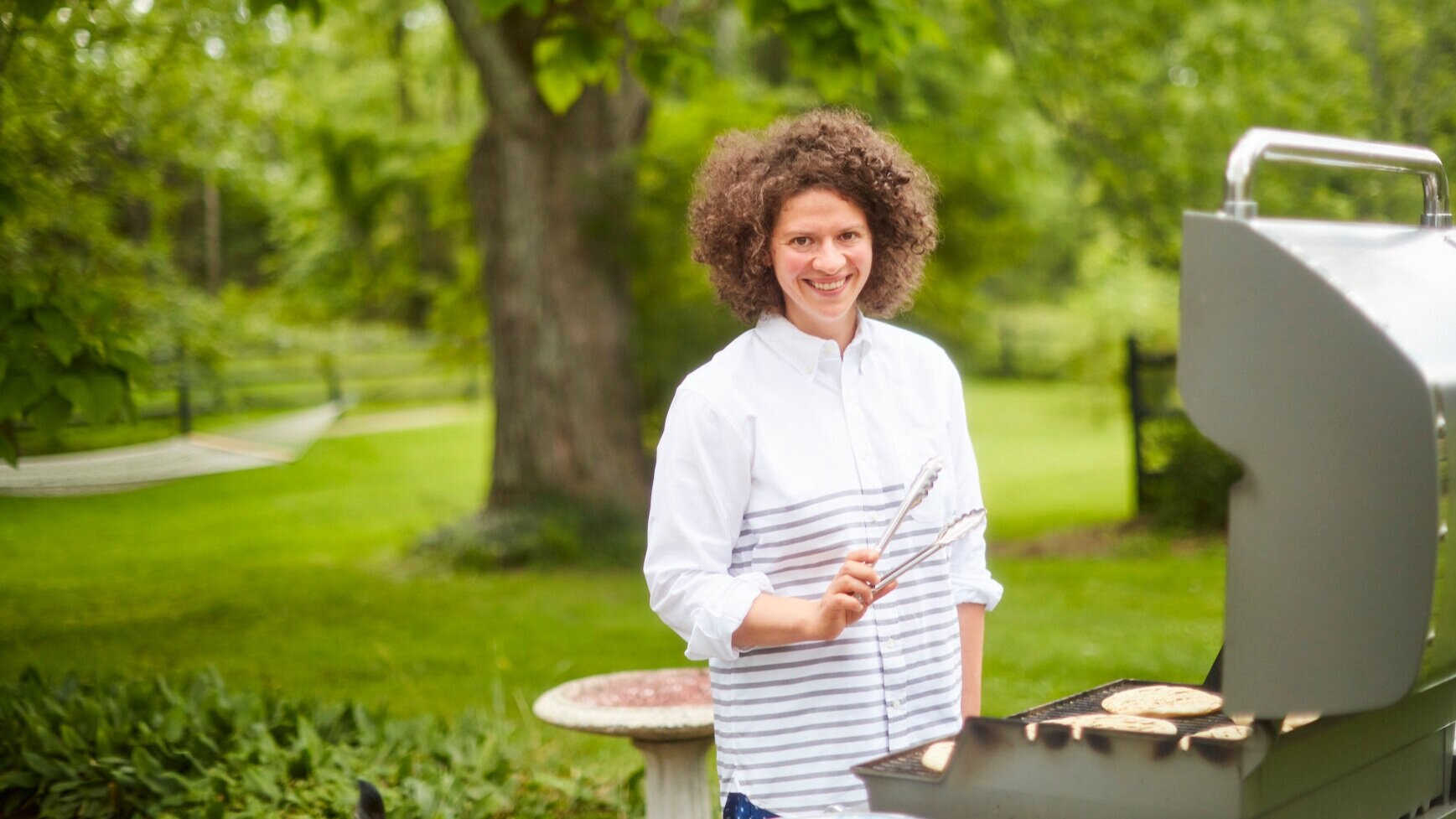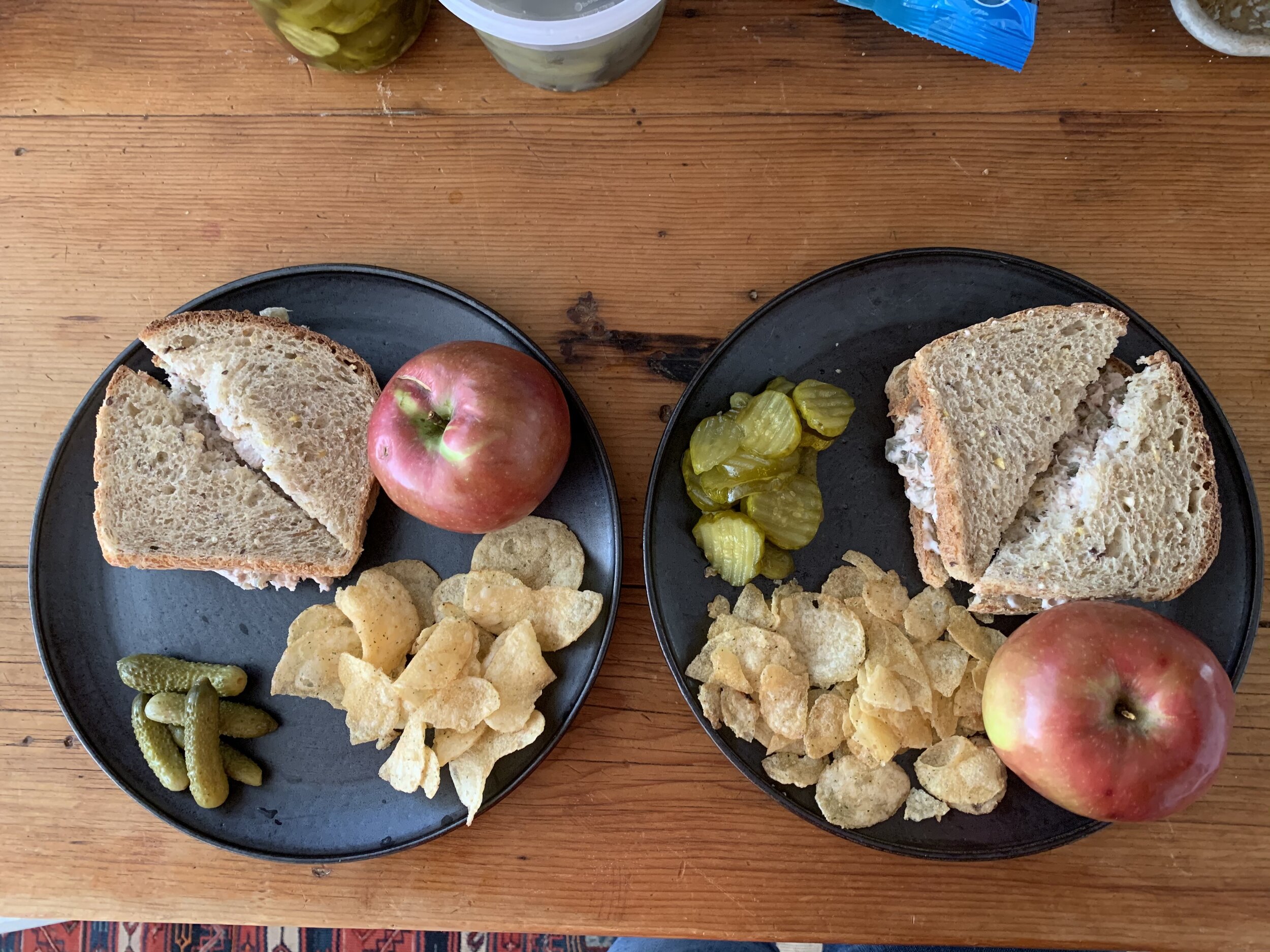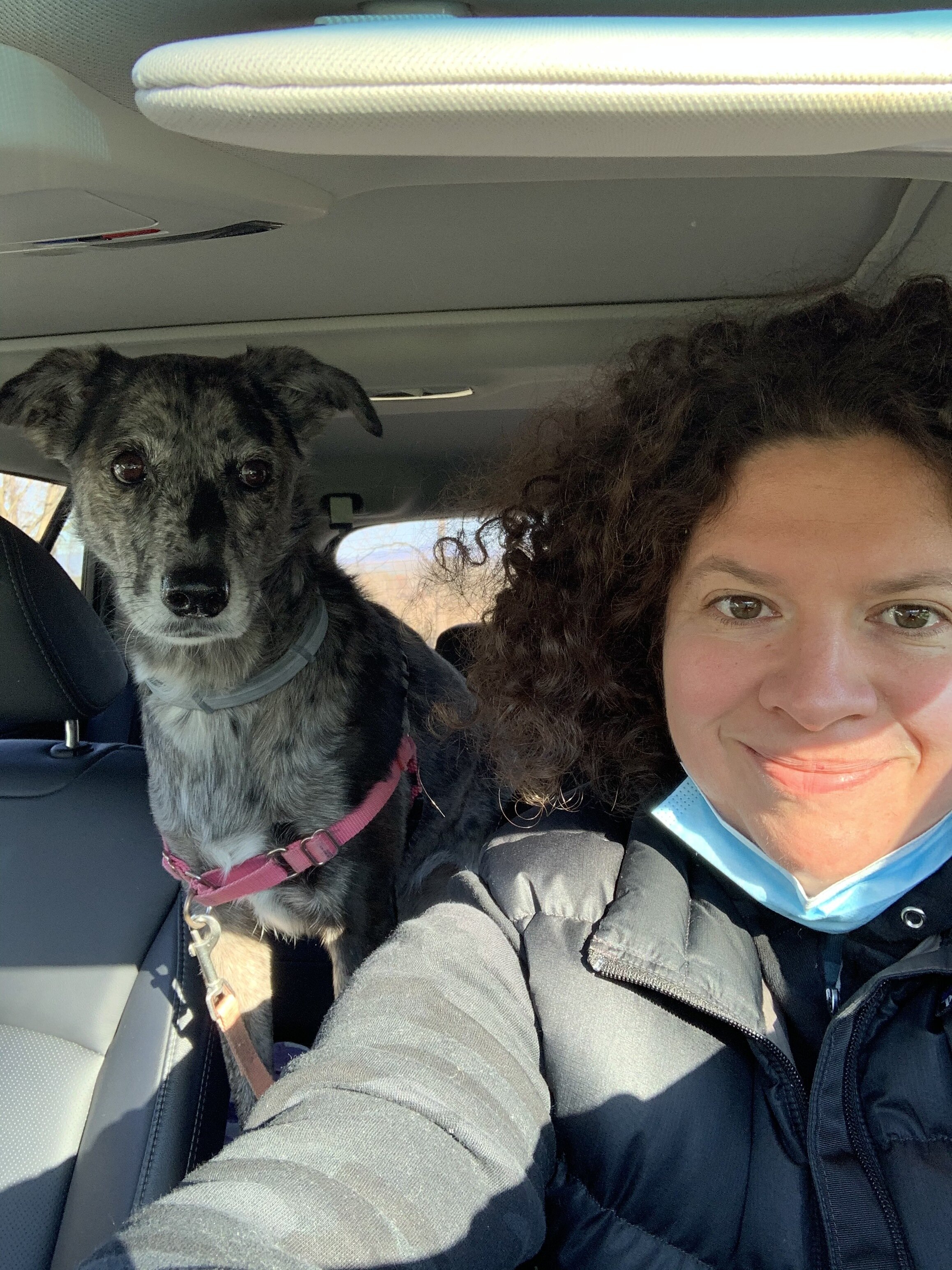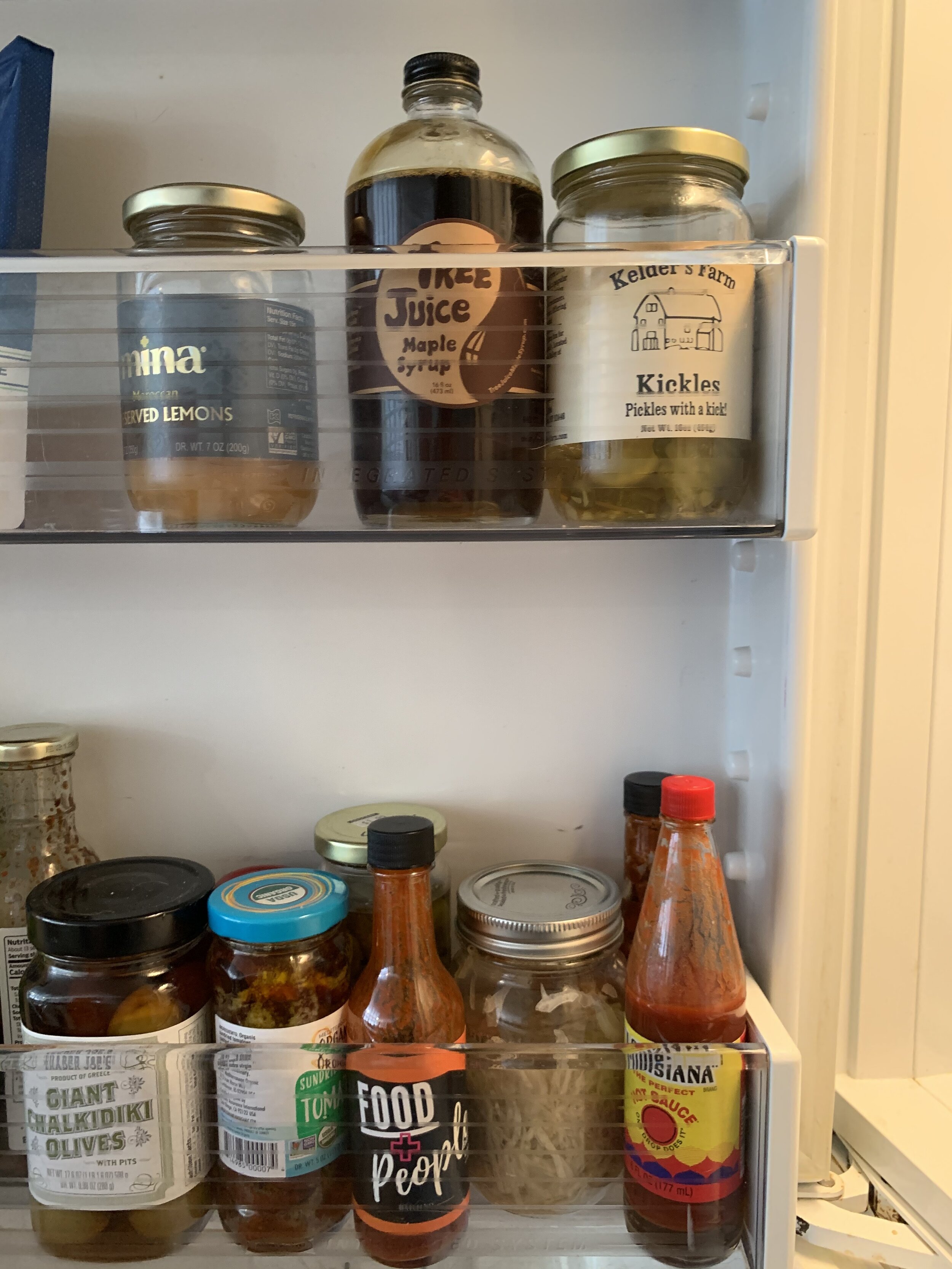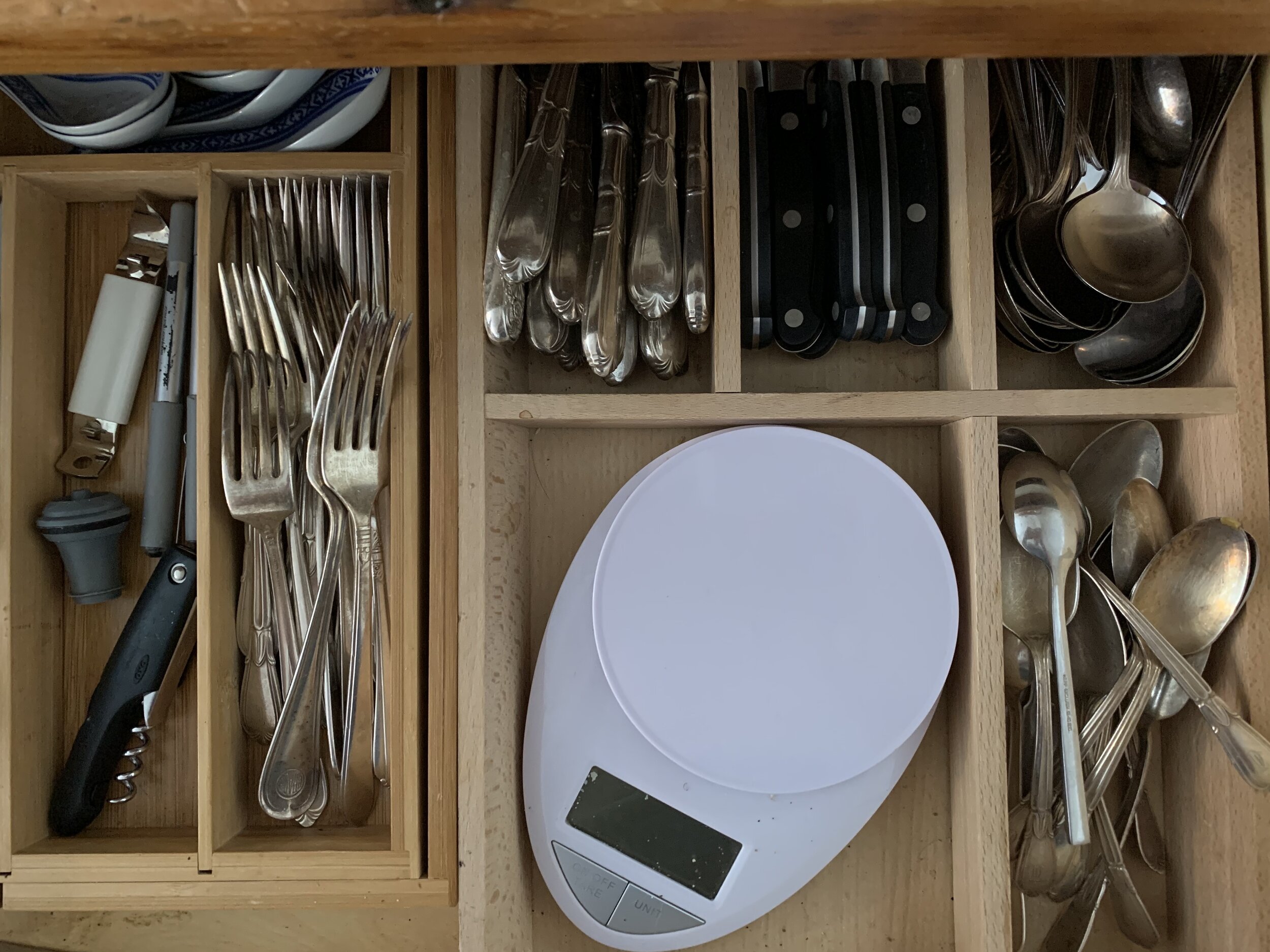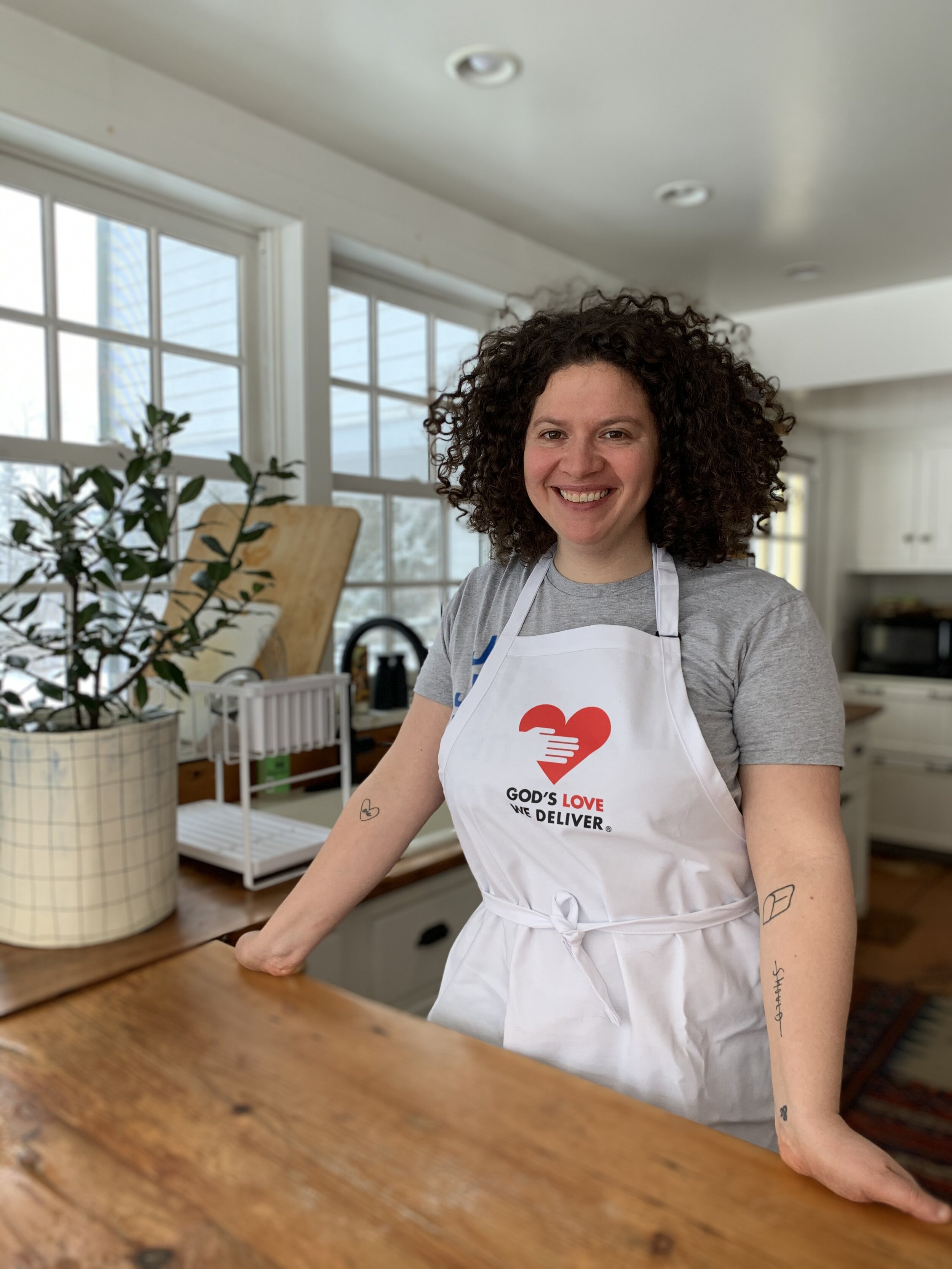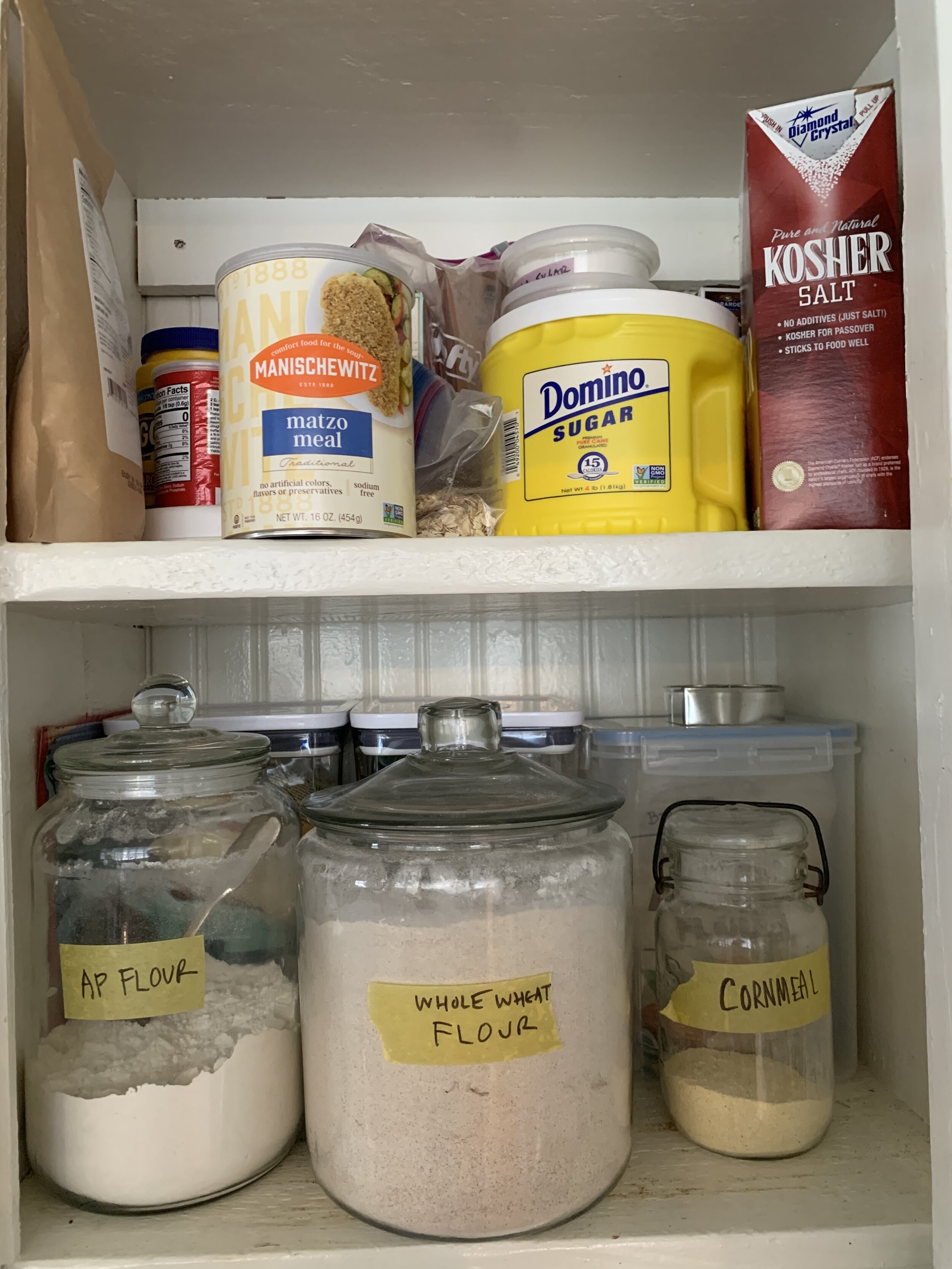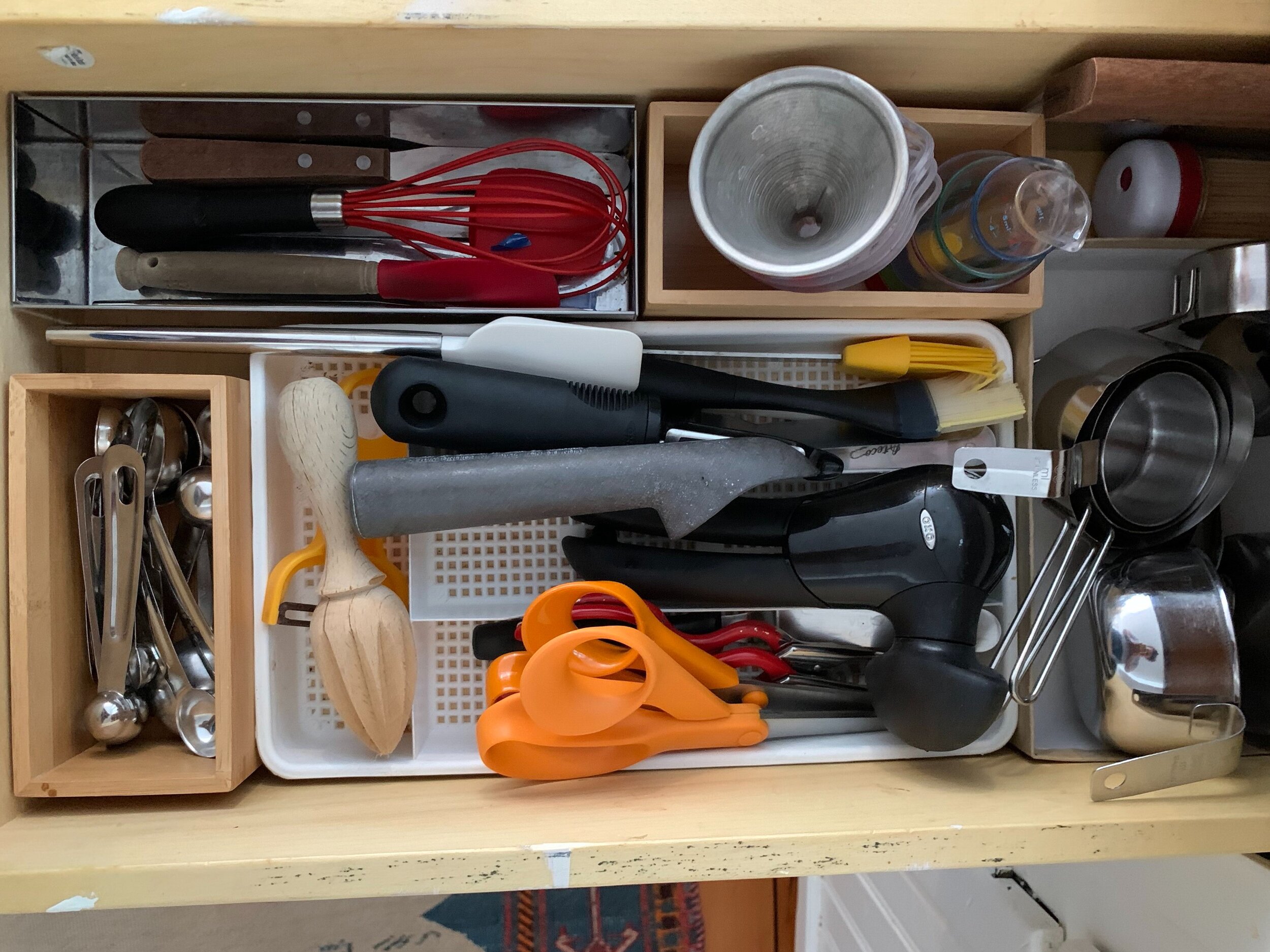Reality Bites with Julia Turshen
Reality Bites is a new feature series focused on the relationships people have with food, what kinds of cooking they’re inspired and sustained by, and the ingredients and tools that help them along the way.
As a chef and cookbook author Julia Turshen has always been ahead of the curve when it comes to sharing ideas for home-cooking that are approachable, accessible, and delicious. Her brand new book Simply Julia, proves to be no exception. But more than that, Julia’s work actively combats the racial and gender-based discrimination that’s long riddled the food industry—she’s the founder of Equity At The Table (EATT), a digital directory that “builds a longer table” for women, non-binary individuals, and people of color working in food. Read on for a peek into the life she’s forged in the Hudson Valley.
What's your morning routine?
My wife almost always wakes up before I do, but either way, we regularly start the day by reading the news on our phones in bed and sharing stories with each other. Then we come downstairs and let the dogs into the backyard and I make one very strong cup of coffee (I love Red Bay Coffee, specifically East Fourteenth) that I have with half-and-half. Lately, we’ve been doing a bit of a puzzle in the morning with coffee which has been really nice.
Tell us a little bit about your background and how you got into food. How is food, for you, related to community, culture, and ancestry?
I cannot remember ever not being interested in food. I’ve wanted to be in the kitchen since I was incredibly young. I watched PBS cooking shows instead of cartoons and I was making Thanksgiving dinner before my bat mitzvah. My maternal grandparents, who died long before I was born, ran a bread bakery in Brooklyn so I think there is something hereditary about my love of food and community. Like many people with a deep interest in food, I also struggled with a lot of body image issues and disordered eating for a long time. After working through a lot of this in therapy, in my marriage, my friendships, and in my own kitchen, I’m happy to say that my relationship to food now is increasingly peaceful and positive. And for that I am grateful.
It cannot be untied from any of those things. Food connects the dots between all of us, whether we’re looking at each other, behind us, or ahead.
How would you describe your diet and relationship to eating?
My diet is based completely on my personal preferences and intuition (I try to follow the framework of Intuitive Eating). My diet is also, from a logistical standpoint, very much based on what I get in my CSA and what needs to be used up in our refrigerator! In addition to being in touch with my own body, much of what I eat is also determined by my wife’s preferences and requirements (she lives with Type 1 Diabetes).
what does a typical day of eating look like for you?
It varies all of the time! But I’ll tell you what I’ve had so far today. First I had a bowl of Wheaties (bought on a whim, haven’t had them in ages!) with my coffee. For lunch, I made myself an egg, cheddar, and pickle sandwich on whole-wheat toast plus a bowl of vegetarian borscht I made a few days ago using beets, turnips, onions, and carrots from our CSA. It’s 2 pm now as I type this and I’m considering another bowl of Wheaties. For dinner, I have pulled some frozen cod (from the Salmon Sisters!) out of our freezer and plan to make the Mustardy Cracker Crumb Fish from Simply Julia and will likely heat up some leftover roast potatoes and make some greens or a salad. I’m also looking forward to dipping into some Jeni’s ice cream later. I got a few pints as a holiday gift from my wife’s family and it’s the gift that keeps on giving.
How do you go about planning and prepping your meals?
I usually cook a ton on the weekends and make things from our CSA, like a tray of roasted potatoes, a pot of greens, and so on and then I repurpose those things all week. Meal plans stress me out but reinventing leftovers makes me very excited.
Where do you shop for your ingredients?
Some favorite places are the farms I just mentioned, plus Gadaleto’s in New Paltz for seafood, the High Falls Food Co-op, Davenport’s in Stone Ridge, Adam’s in Kingston, and also I buy a lot of stuff online from Kalustyan’s.
What’s your food shopping strategy?
During the winter, we pick up a ton of vegetables from Long Season Farm every other week and if we run out before our next pickup, I often supplement from local markets. During the summer we pick up each week from Tributary Farm (and use some of what we grow from seedlings we buy in the spring from Rise & Root Farm). We keep our cabinets stocked with lots of pantry goods from places like our local food co-op, online from Thrive Market, and every so often we do a big shop at a big grocery store. We also sometimes order groceries from Damn Good Honey Farm— they have pivoted during the pandemic to be an amazing resource in our area! We also buy chicken and sometimes other meat from Applestone’s vending machines.
Who do you typically eat with—do you often eat alone or with family, friends, or community?
I eat almost every single meal at home with my wife. Our dogs enjoy a lot of table scraps.
Are there times you feel uninspired to cook, and if so, how do you inspire yourself?
Yes, all of the time and that’s when I either ask my wife to cook, we get takeout, or we do Annie’s mac-and-cheese with some greens throw into it!
What do you eat that makes you feel your best?
It’s not a specific food, but whenever I eat exactly what I want to eat when I want to eat it, I feel both grateful and satisfied. So that feels really good.
What’s always in your fridge and pantry?
Eggs, cheddar cheese, lots and lots of condiments (including Food Plus People’s hot sauces— they’re so good!!), rice, canned tuna, olive oil, crackers, half-and-half, coffee, my wife’s insulin, vegetables...
what cookware and serving ware are essential, and where do you get them?
A large cutting board, a chef’s knife that fits comfortably in your hand, lots of dish towels, sheet pans, and I really do love an immersion blender (though it’s not essential). Korin’s Misono 440 is my knife but I also recommend Misen as a more affordable option.
I cherish all the things my wife and I have collected from our families, like an old ceramic bowl I grew up with and my grandmother’s candlesticks.
Essential cookbooks?
The five I turn to the most are Edna Lewis’s The Taste of Country Cooking, Lee Bailey’s Country Weekends, Cheryl and Griffith Day’s The Back in the Day Bakery Cookbook, Yossy Arefi’s Snacking Cakes, and Ina Garten’s Barefoot Contessa Parties!.
Chefs or individuals that inspire you?
How much time do you have?? Every single member of Equity at the Table! For a few names in particular: Rahanna Bisseret Martinez who makes me hopeful for the future, Shakirah Simley who does the same, Pati Jinich who teaches with such positivity, Karen Washington who shows us what’s possible, Dr. Jessica B. Harris who we are all indebted to, Jody Williams and Rita Sodi who set the best tables, and so, so, so many more.
What are your favorite restaurants and where do you get take-out (if you do)?
Top Taste always and forever, and also Love Bird (it’s SO good), and Cherries.
Your go-to recipe?
Lately, I cannot stop making matzoh brei! It was something I grew up eating and it’s just so easy and simple to make and it’s so comforting.
all images provided by julia turshen and main image by david loftus
interview by marina sulmona

